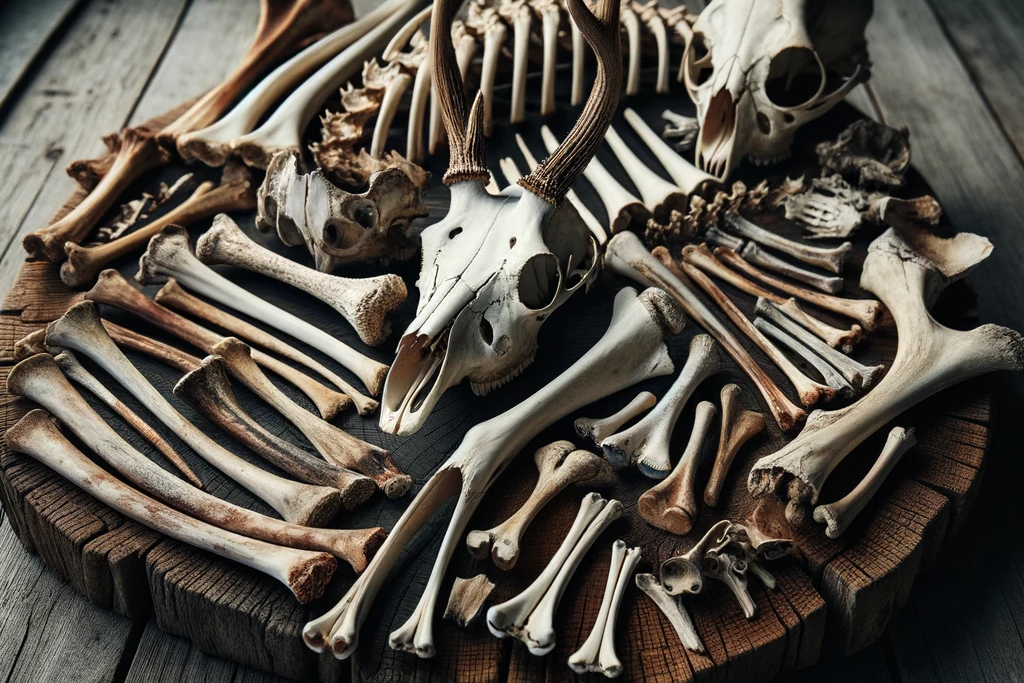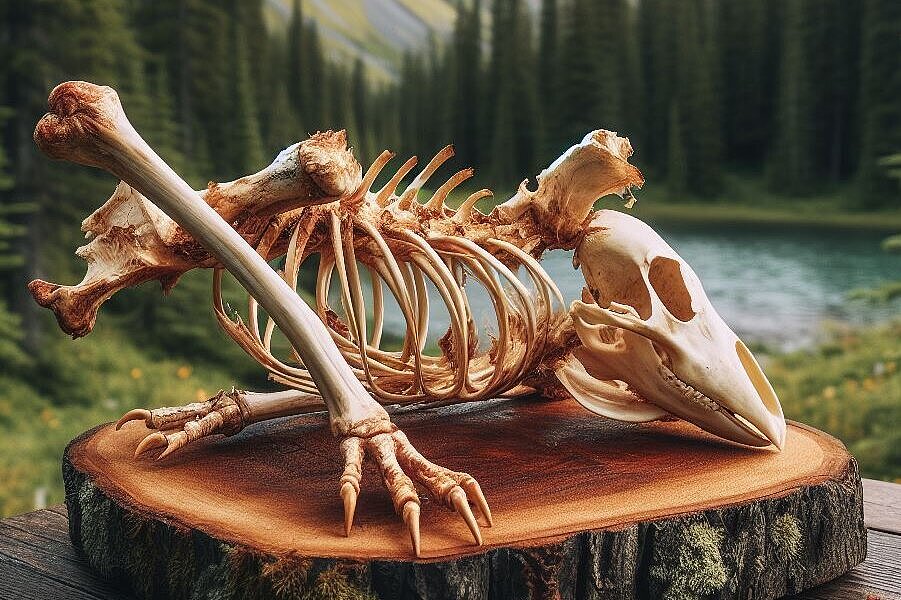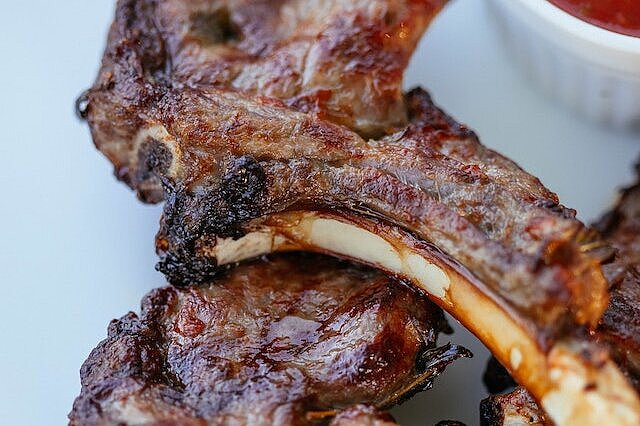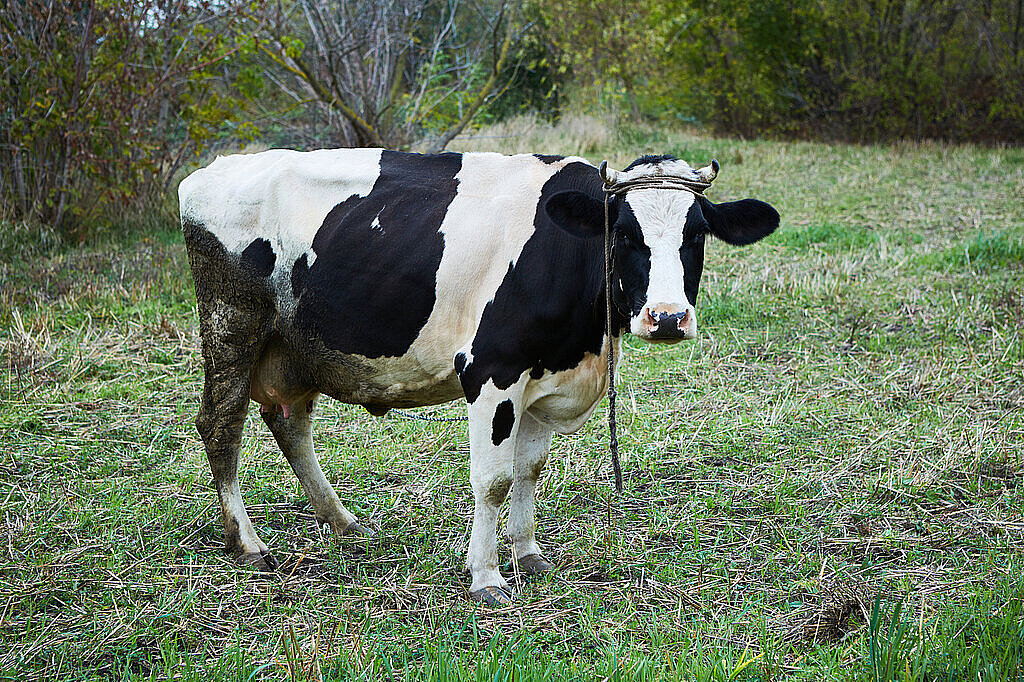Beef bone
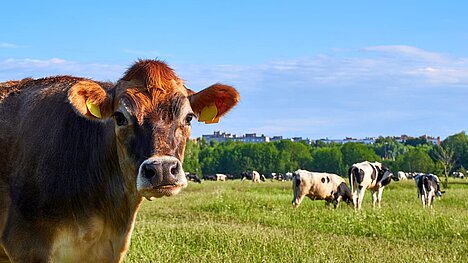
What are cattle bones?
Cattle bones are the bones of cattle, which are usually a waste product of meat processing. They can come from various parts of the cow, such as the sternum, ribs, joints or tail. In addition to bone tissue, beef bones also contain cartilage, tendons, meat and fat.
What are the benefits of beef bones for dogs?
Beef bones can have many benefits for your dog, for example:
- They provide important minerals and trace elements, such as calcium, phosphorus, magnesium and iron, which are important for your dog's bone and dental health.
- They satisfy your dog's natural urge to chew and help him to reduce stress and avoid boredom.
- They clean your dog's teeth and prevent tartar and bad breath.
- They promote your dog's digestion and stimulate intestinal activity.
- They strengthen your dog's immune system and support wound healing.
What are the disadvantages of beef bones for dogs?
However, beef bones can also have some disadvantages and risks for your dog, for example:
- They can cause injury to your dog's mouth, throat or gastrointestinal tract if they splinter or have sharp edges.
- They can cause constipation, diarrhea or vomiting if they are too large, too greasy or too difficult to digest.
- They can lead to an overdose of minerals or fat if they are fed too often or too much.
- They can lead to infection or poisoning if they are spoiled or contaminated with bacteria or parasites.
How can you safely offer beef bones to your dog?
To reap the benefits of beef bones for your dog and minimize the risks, you should follow a few tips, such as
- Choose only fresh and raw beef bones that are not cooked, smoked or seasoned.
- Only choose beef bones that are suitable for your dog's size and age. Avoid bones that are too small, too large or too hard that your dog could swallow or injure himself.
- Only choose beef bones that still have enough meat and gristle for your dog to gnaw on. Avoid pure marrow bones, which are too fatty and difficult to digest.
- Only feed beef bones as an occasional addition to your dog's diet, not as a main meal. Reduce the amount of normal food accordingly to avoid overfeeding.
- Always supervise your dog when he eats beef bones and take the bone away if it becomes too small or too sharp.
- Store beef bones in a cool, dry place and dispose of them after no more than three days to avoid spoilage or infection. Never store beef bones in plastic bags, as this can lead to the growth of toxic bacteria.
- Clean your dog's mouth and teeth after eating beef bones to remove food debris and prevent infection.
- Observe your dog after eating beef bones for possible signs of intolerance or complications, such as loss of appetite, vomiting, diarrhea, blood in the stool, fever or apathy. If you notice such signs, you should consult a vet immediately.
Beef bones can be a useful and tasty addition to a dog's diet if they are selected, fed and stored correctly. They can bring many health and behavioral benefits to your dog, but can also pose some risks. Therefore, you should always be well informed and keep a close eye on your dog when offering him beef bones.
If you notice any signs of hypersensitivity or poisoning in your dog, you should see your vet immediately. We are not a substitute for a vet, but we try to be as accurate as possible. Every dog reacts differently and we recommend you get a second opinion or consult your vet if in doubt.
Stay healthy and take good care of your four-legged friend!😊
Similar to Beef bone
Deer bones are the bones of deer that are a by-product of hunting or meat processing. They are usually dried or smoked to preserve them and improve the taste. There are different types of deer...
Chicken bones are bones from chickens, which are usually a waste product from meat processing. They consist of collagen, a protein that gives bones stability, and minerals such as calcium and...
Fleshy bones are bones that still contain a lot of meat, tendons, cartilage and skin. They are not to be confused with pure bones, which contain little or no meat. Meaty bones can come from...
Beef bone meal is a by-product of meat processing. It is made from beef bones, which are first boiled, degreased and sterilized. They are then crushed, ground and dried. The result is a fine powder...
